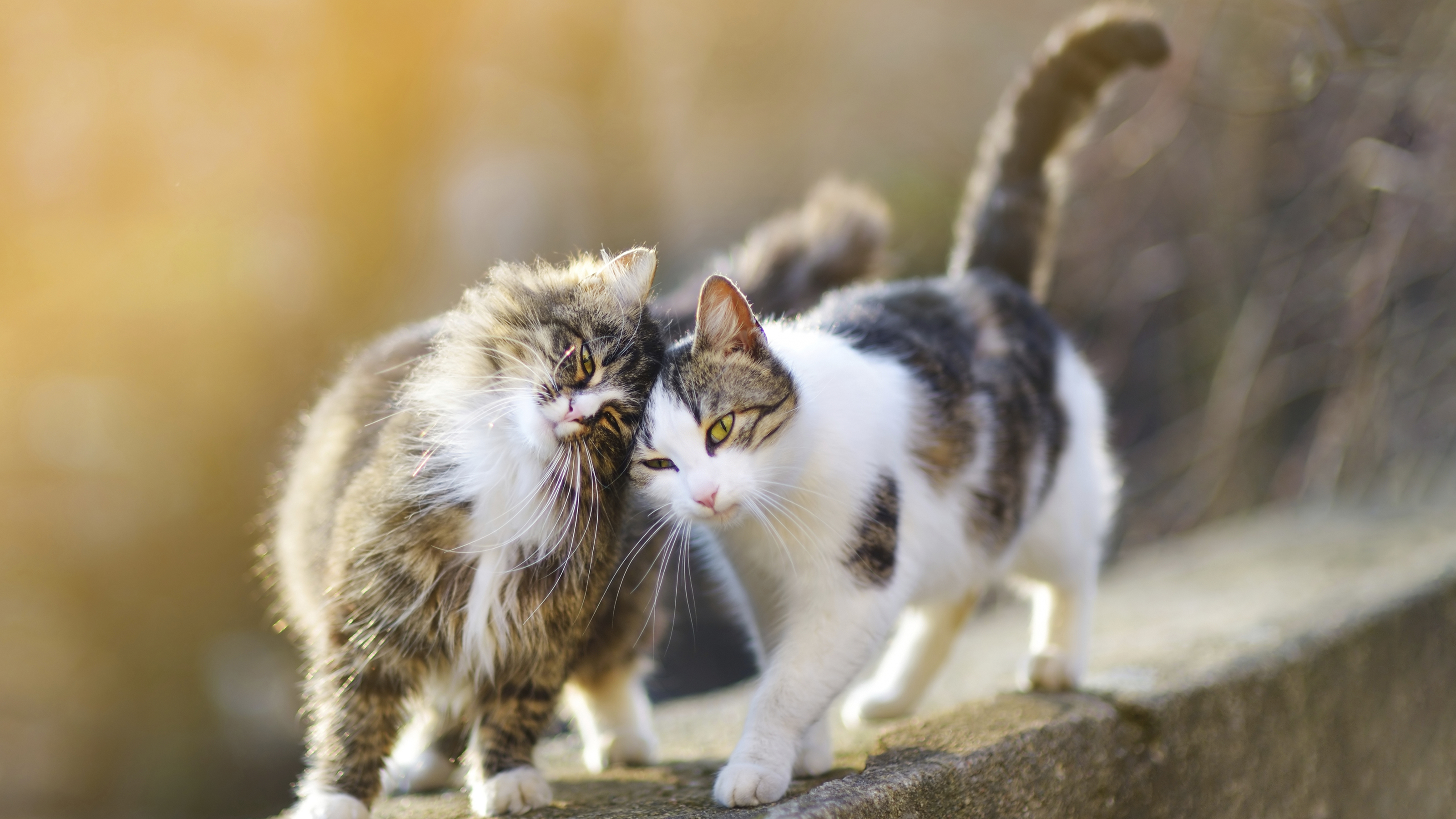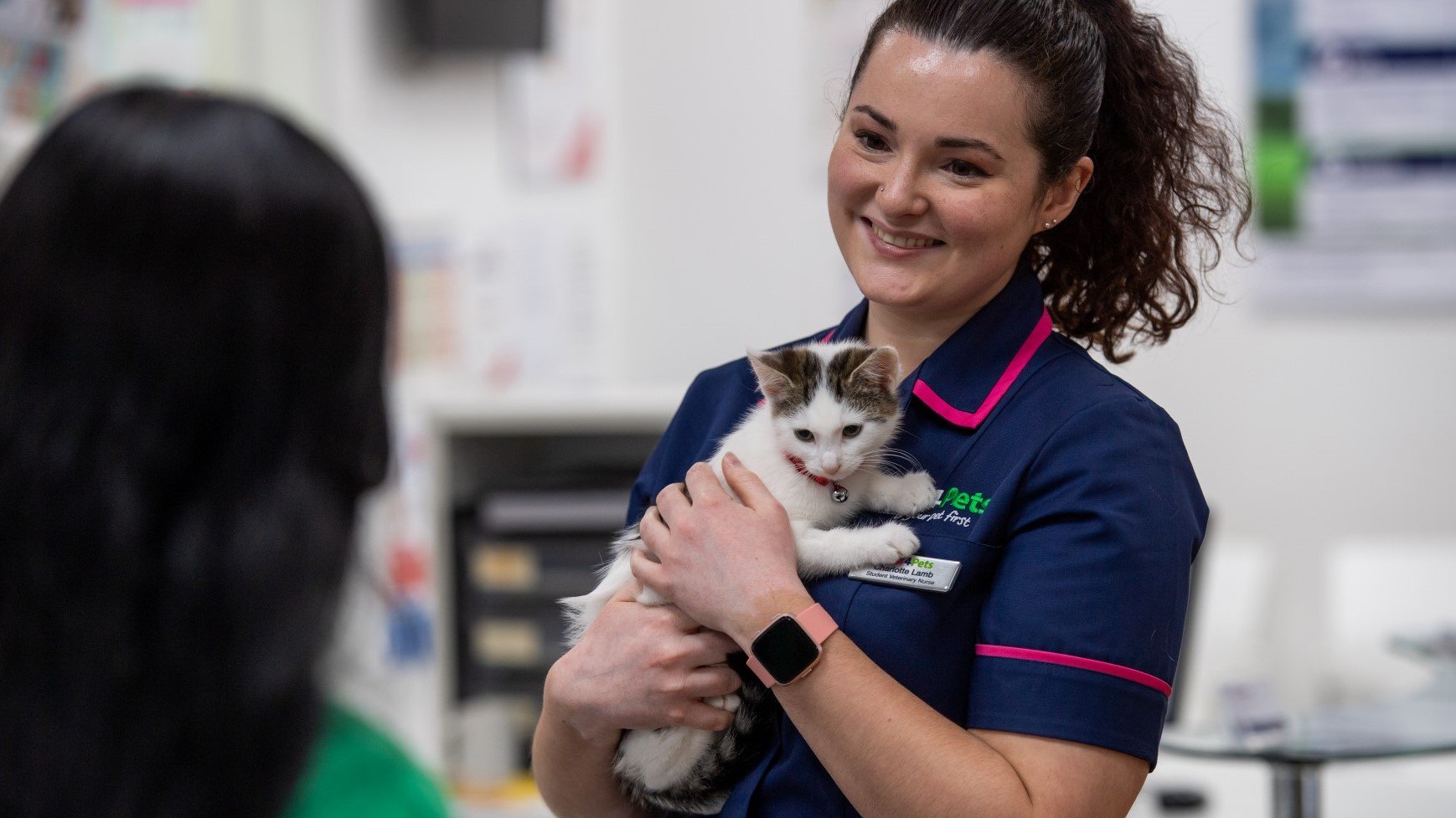
Introducing Cats And Kittens To Other Pets
A slow, steady introduction is best, as this gives both pets a chance to get to know each other, and reduces the risk of your resident cat feeling threatened or ousted.
Cats are very territorial, and also stubborn – once your cat has decided it doesn’t like your new arrival it can be very difficult to change their mind.
This means a slow, steady introduction is best, as this gives both pets a chance to get to know each other, and reduces the risk of your resident cat feeling threatened or ousted.
Introducing cats and kittens to other pets
Bringing a new cat home will be very different depending on if you already have a cat, or if you don’t, and if you are introducing a kitten or an adult cat.
Making sure the needs of your cat or cats are all met, and that any relationships are harmonious, can be tricky but hard-work and effort early on will pay huge dividends.
While cats can live very happily together in the same household, they don’t really ‘need’ other cats, and some may struggle to accept a new kitten.
A few preparations ahead of your kitten’s arrival and some carefully managed introductions should give your cats the best chance of getting on well in future.
Dogs will often accept a new kitten more easily than cats will and many dogs and cats go on to become really good friends.
You’ll still need to supervise all early interactions and it’s important to prepare your dog and to recognise that some dogs are more likely to show predatory behaviour to a kitten, so safety is a priority.
Cats are predators and small pets will awaken their hunting instincts, so while you might be able to get a cat to live happily with larger pets like guinea pigs or rabbits, especially if they live in a hutch and run, it may make smaller pets, like hamsters, stressed to know there’s a predator nearby.
It’s safest to keep small pets in cat-proof housing that the kitten can’t climb on top of or sit outside and to keep them in rooms to which cats don’t have access.
Cats and rabbits can get on well together if they’ve been introduced carefully. When you introduce a kitten to a house rabbit, your rabbit may well be larger than your kitten and, while rabbits are prey animals, they can be territorial and may be aggressive if they feel threatened. They also come equipped with sharp teeth and nails, so it’s important to supervise introductions between kittens and rabbits so that both pets feel safe.
It’s best to introduce your kitten to your rabbit in a room to which your rabbit doesn’t normally have access. Popping your kitten into a puppy crate, in the same way as you would when introducing them to your dog, is a low-risk way to allow nose-to-nose interactions.
Once both pets seem comfortable with this, you can begin to allow them both freedom in the same room. It may take your rabbit weeks or months to accept your kitten, so don’t rush. Until you’re absolutely certain that both pets are getting on well (you may see them grooming one another or settling down in a bed together), separate them when you can’t supervise them directly.
Health Plans to keep your kitten healthy
At Vets4Pets we offer a range of Health Plans that make essential routine treatments more affordable. You'll save money on things like annual vaccinations, flea and worm treatment and routine health check-ups.

Join our free Kitten club
Join the club for expert advice and tailored offers, including £30 off our Complete Care Health Plans

Puppy & Kitten Advice
Giving your pet the best start in life begins with getting the best expert advice.
